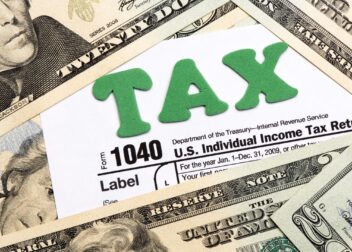The First Tax Season After Your NIL Deal – What to Expect
Navigating your first tax season after signing Name, Image, and Likeness (NIL) deals can be overwhelming. With new income streams and tax obligations, knowing what to expect helps you avoid surprises and ensures a smoother process. Here’s a breakdown of what student-athletes should anticipate during their initial tax season after securing NIL income.
Receiving Form 1099
Unlike traditional employment, your NIL income often qualifies you as an independent contractor. Expect to receive IRS Form 1099 from each business or individual that paid you $600 or more during the year. These forms report your earnings and are crucial for accurate tax filings.
Calculating Self-Employment Taxes
As an independent contractor, you’re responsible for self-employment taxes, covering both the employer and employee portions of Social Security and Medicare taxes. Be prepared for a larger tax bill, typically around 15.3%, which can significantly impact your total tax liability.
Tracking and Reporting Multiple Income Sources
Your NIL earnings may come from various activities, such as endorsements, social media promotions, appearances, merchandise sales, or royalties. Accurately tracking and reporting each source is essential to avoid discrepancies and potential audits.
Understanding Deductible Expenses
You can reduce your taxable income by claiming business-related deductions. Common deductible expenses include travel, equipment, training, marketing, agent fees, legal costs, and promotional activities. Meticulous record-keeping of these expenses throughout the year will make filing easier and lower your taxable income.
Filing Multi-State Taxes
If your NIL activities cross state lines, you may owe taxes in multiple states. Each state has its own filing requirements and tax rates, and understanding these obligations early on helps avoid penalties and complexities at tax time.
Making Quarterly Estimated Payments
If you haven’t been making quarterly estimated tax payments, you may face a substantial lump-sum payment during tax season. Moving forward, calculate and pay estimated taxes quarterly to avoid future penalties and ease the burden during tax filing.
Seeking Professional Guidance
Your first tax season after securing NIL income is the ideal time to consult a CPA or tax professional experienced with NIL taxation. They will help clarify obligations, optimize deductions, and implement effective tax strategies tailored specifically to student-athletes.
Dealing with IRS and State Notices
Be prepared to respond promptly if you receive any communications or notices from the IRS or state tax authorities. These notices can be stressful, but timely responses guided by a tax professional can quickly resolve issues and reduce audit risk.
Planning Ahead for Next Year
Use your first tax season as a learning opportunity. Review your financial management practices, improve record-keeping systems, and plan strategically for future NIL deals to ensure smoother, more efficient tax filings in subsequent years.
Final Thoughts
Your first tax season after NIL earnings doesn’t have to be daunting. Understanding the process, preparing documentation, and seeking professional guidance can significantly reduce stress and set you up for ongoing financial success as you continue to build your brand and career.



